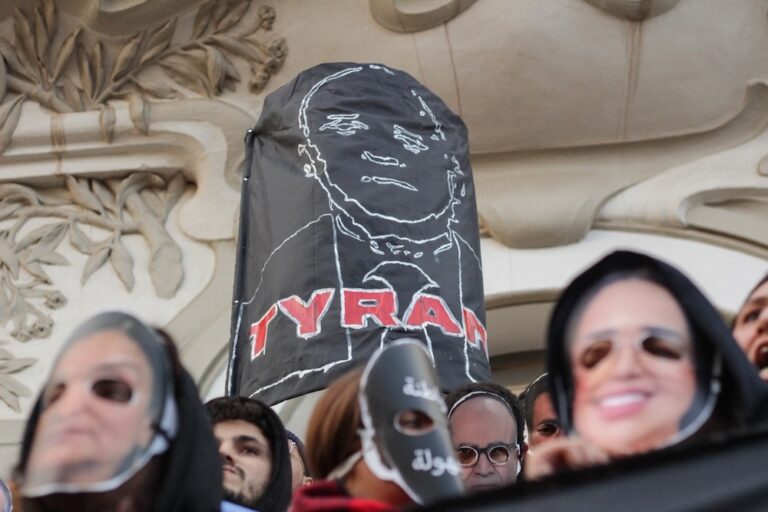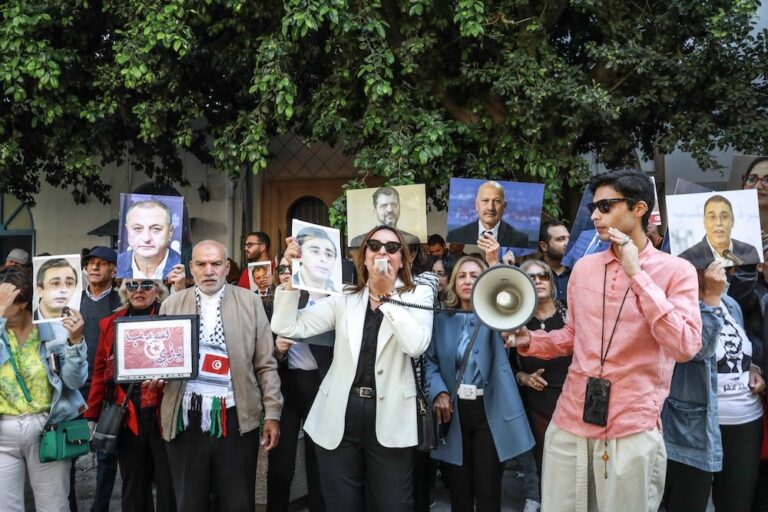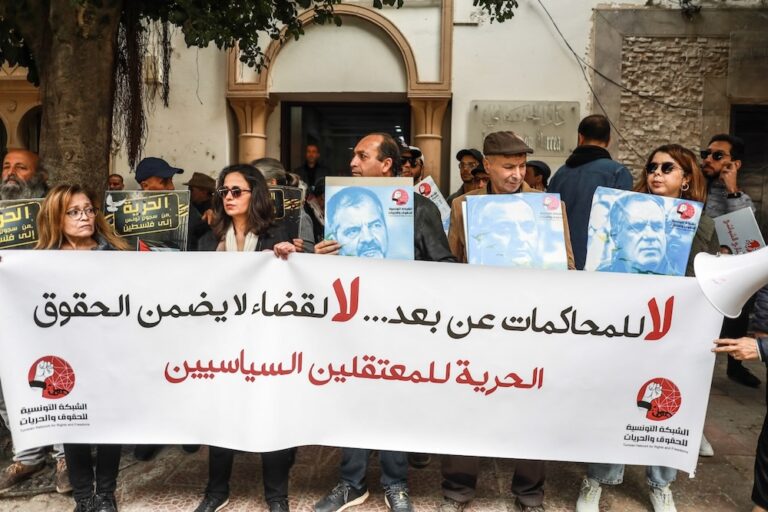(CPJ/IFEX) – On 18 June 1998, Taoufik Ben Brik, a correspondent for the Paris-based daily “La Croix -L’Evenement”, was summoned to the Ministry of Interior headquarters in Tunis by two plain clothes police officers and brought before Mohammad Ali Ganzoui, assistant to the Minister of Interior, “La Croix” reported. During their encounter, Ganzoui accused Ben […]
(CPJ/IFEX) – On 18 June 1998, Taoufik Ben Brik, a correspondent for the
Paris-based daily “La Croix -L’Evenement”, was summoned to the Ministry of
Interior headquarters in Tunis by two plain clothes police officers and
brought before Mohammad Ali Ganzoui, assistant to the Minister of Interior,
“La Croix” reported. During their encounter, Ganzoui accused Ben Brik of
writing “subversive” material a reference to a 12 June article carrying the
by-line of Ben Brik and “La Croix” senior reporter Julia Ficatier. The
article discussed, among other things, police harassment in Tunisia
including arbitrary raids and searches of people’s homes. Ganzoui
subsequently urged Ben Brik to cease his work as a journalist.
Over the last several years, CPJ has documented on-going government pressure
against the press in Tunisia. Journalists who have attempted to provide
critical coverage of state policy or have written about sensitive political
issues have been the targets of swift official responses, including
dismissal from their jobs, denial of accreditation and restrictions on
foreign travel. Since 1991, four foreign correspondents have been expelled
from the country for what authorities have deemed their critical coverage of
Tunisian affairs. As a result of these measures, the press in Tunisia
remains highly self-censored.


